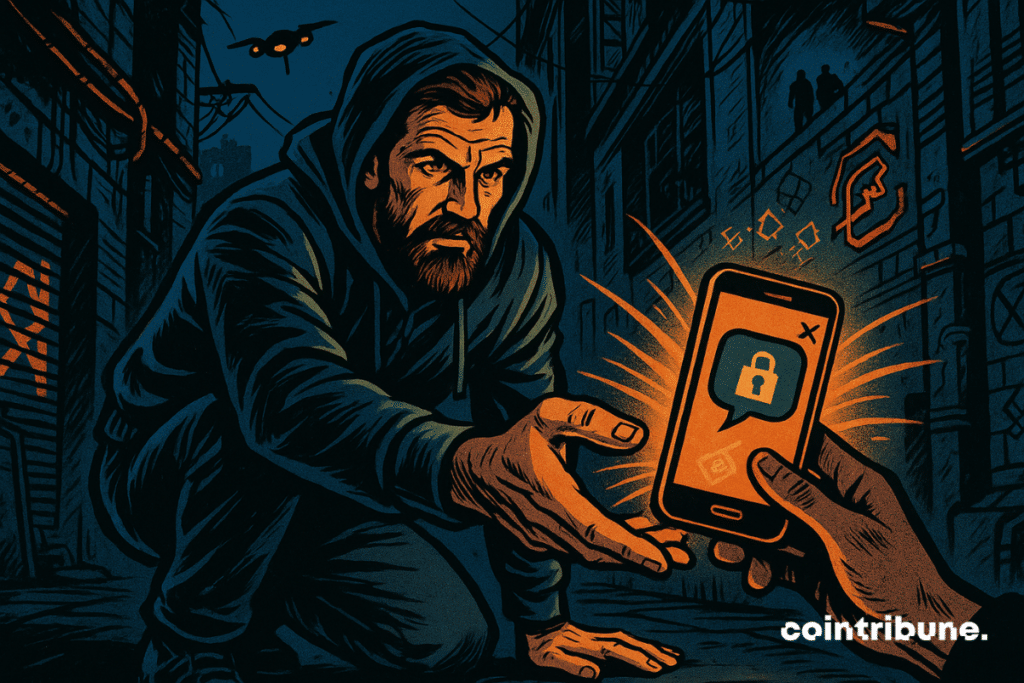Jack Dorsey’s BitChat: The Offline, Secure Messaging Revolution You Didn’t See Coming
Jack Dorsey just dropped a crypto-powered middle finger to surveillance capitalism. BitChat—his new decentralized messaging protocol—lets users trade encrypted messages without an internet connection, leveraging Bitcoin's Lightning Network for peer-to-peer magic.
No servers. No metadata leaks. Just pure, uncensorable comms.
The twist? It’s built on Nostr, the same protocol powering Damus. Dorsey’s doubling down on his anti-big-tech crusade, this time targeting the $200B messaging oligopoly. (Take that, Zuckerberg.)
Early tests show messages routing via Bluetooth/Wi-Fi mesh networks—ideal for protesters, journalists, or crypto degens dodging authoritarian firewalls. The kicker? It’s completely free. No token, no ICO, just open-source code.
Of course, Wall Street will find a way to short it.

In Brief
- Bitchat uses Bluetooth mesh networks for peer-to-peer messaging without internet, mobile networks, or central servers.
- Messages are encrypted, ephemeral, and relayed through nearby devices, extending range and maintaining privacy.
- Designed for crisis zones, protests, and off-grid communication, Bitchat works even during blackouts or censorship.
- Inspired by Hong Kong protest tools, Bitchat offers a censorship-resistant alternative to mainstream messaging apps.
Decentralized Messaging via Bluetooth Mesh Networks
Block CEO and Twitter co-founder Jack Dorsey recently rolled out the beta version of Bitchat, a new peer-to-peer social communication app that uses Bluetooth Low Energy (BLE) mesh networks. As per the WHITE paper, the new messaging protocol is designed to function without the internet, KYC, or any form of centralized data storage.
In a recent X post, Dorsey clarified that the project is a personal experiment in “Bluetooth mesh networks, relays and store and forward models, message encryption models, and a few other things.”
Bitchat offers “ephemeral messaging,” meaning messages are temporarily stored in device memory instead of a central database. Hence, it disappears after a set timeframe or once it’s viewed by the receiver. For an added LAYER of security, the protocol also provides end-to-end encryption.
As users get within range of each other, the app’s host devices FORM a peer-to-peer cluster, transmitting messages by bouncing between nearby devices. To extend the coverage area, certain “bridge” devices will link several meshes.
Popular messaging platforms such as Meta’s WhatsApp and Messenger require an internet service for online connection. Plus, these apps are centralized, with data stored across the vast network of Meta’s data centers worldwide.
Dorsey explained that Bitchat allows secure communication in areas where internet access is either censored or out of reach. He added that the project embodies “IRC vibes” of the text-based chat apps in the 1990s.
How Bitchat Works
Built to be trustless, Bitchat provides end-to-end encryption and censored messaging. In addition, users can create group chats with the option to use passwords.
Here are the underlying operational principles of Bitchat:
- Devices in the mesh network function as both senders and receivers, allowing messages to hop across multiple nearby devices and exceed the usual 30-meter Bluetooth limit.
- The system is independent of the Internet, mobile networks, or centralized cloud services.
- Messages remain stored only on the user’s device unless deliberately relayed.
- To work within Bluetooth’s limited bandwidth, larger messages are divided into smaller segments of 500 bytes.
- Future enhancements may include WiFi support to improve range and data capacity.
Secure Offline Communication
Bitchat is created for real-world utility, especially in areas with limited connectivity, such as during disasters and protests. More so, this technology can be applied when communication is untrusted, such as during private conferences or meetings.
Besides, it doesn’t run on heavy infrastructure like communication towers and data centers. Hence, communication is possible even during network failures, major blackouts, or internet blockages. Fundamentally, Bitchat is predicated on the same philosophy employed by the Bluetooth-based apps used during the 2019 Hong Kong protests.
Bitchat’s launch seeks to address growing concerns around data confidentiality, cyber monitoring by top tech firms, and the vulnerability of centralized systems to hacks and government suppression. Although still in its testing phase, the protocol’s open-source white paper is now available on GitHub, where developers study or contribute.
Maximize your Cointribune experience with our "Read to Earn" program! For every article you read, earn points and access exclusive rewards. Sign up now and start earning benefits.

